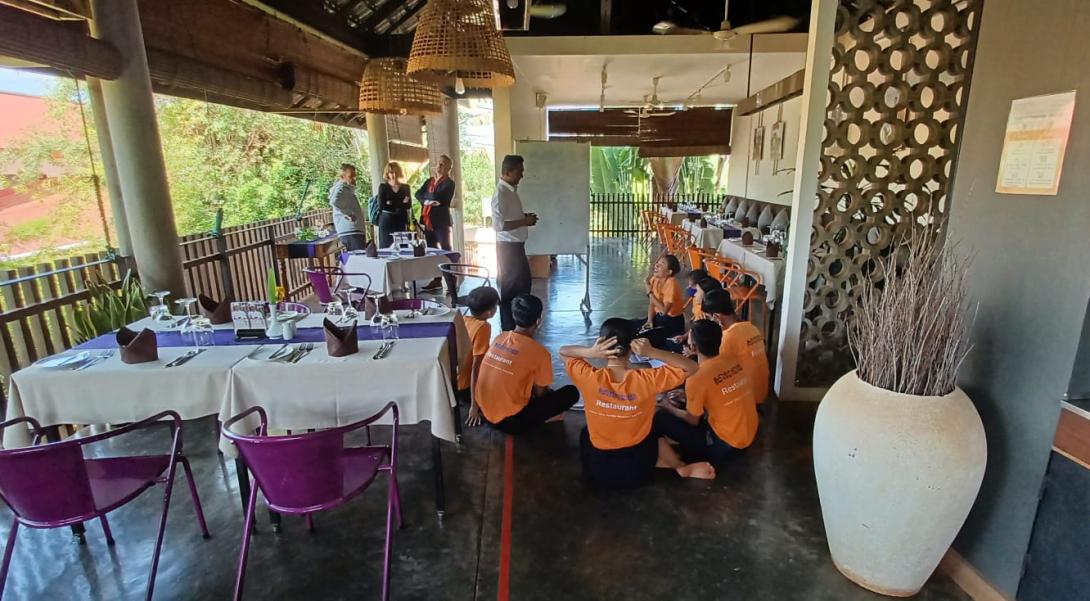
A best practice guide for social entrepreneurs in South-East Asia
Within the framework of the FIPESA project, one of the objectives is to model and sustain the business models of social enterprises for training and work integration. The population of many South East Asian countries is particularly young. These young people often lack the skills required, despite the growing needs of businesses, particularly in sectors such as tourism and the hotel and catering industry.
Education and training are therefore key to bridging this social need and economic opportunity. However, the vocational training sector is still underdeveloped. In order to make training accessible to the most vulnerable populations in a sustainable way, a new model is developing: social enterprises for training and professional integration.
In this context, a 'Social Business Study' has started in 2021 in Cambodia in 3 partner schools of the project (Pour un Sourire d'Enfant, Sala Baï, Ecole du Bayon), in order to analyse the different existing training models and to highlight the good practices as well as the essential steps to implement a sustainable model.
The conclusions of this study will highlight different scenarios that will result from these observations and interviews conducted within these 3 schools. A best practice guide will then be published and will serve as a reference for any vocational training institution or individual wishing to develop a social enterprise.
For Martin Thiébaut, Managing Director of Auteuil insertion, (a subsidiary of Apprentis d'Auteuil), it is important to bring added value to this study, with his view as a social entrepreneur on these existing models, in order to push them to go further in the employment of young people through the establishment of social enterprises.
The results of this study will be available, in the form of a good practice guide, by autumn 2022.